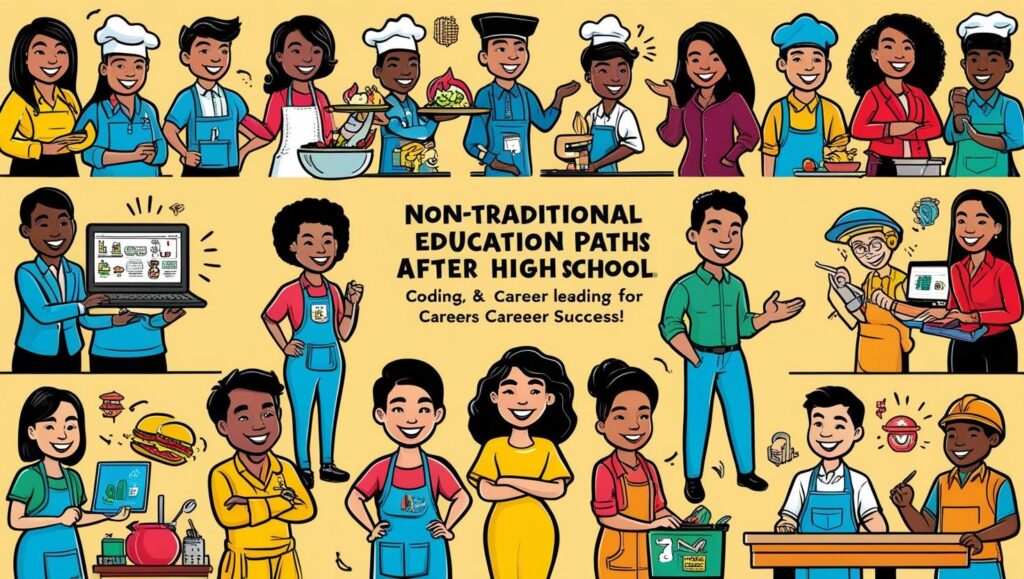Choosing a top US undergrad degree program is probably the most crucial choice for any independent student. With thousands of institutions and various degrees in the United States alone, which can seem daunting, the higher education system is extremely complex. The choices range from Ivy League colleges to state universities to liberal arts colleges. Selecting a course that closely relates to your future goals, strengths, and interests is very important for your future success.
Why Earning a Top US Undergrad Degree Is So Important
In the United States, your career’s foundation is built on earning a top US undergrad degree. While students in many other countries are tracked into a particular line of work early in their education, the American system encourages exploration through a broad liberal arts education. This method enables students to pursue a diverse range of general studies classes before selecting their major. As a result, students are reinforced with true critical thinking and communication skills, as well as interdisciplinary training for whatever path they may follow in the future, both of which are in high demand in the job market and are critical in the rise of a new economy.
Finding a Market for Your Interests
When deciding on a top US undergrad degree, it’s important to balance personal interests with job market demand. While passion plays a vital role, career prospects should not be ignored. In recent years, there has been massive growth across fields like computer science, engineering, business, healthcare, and data science. These programs not only offer strong job security but are also among the highest-paying career paths.
Conversely, humanities, social sciences and arts students may not be able to directly pursue a specific career, however, their degrees are just as valuable. These are great fields, but make sure to couple that major with either a high-demand minor or certificate specific digital marketing, coding, or project management — so you will get hired.
Institutional Reputations and Accreditors

Accreditation will always be a major point when comparing colleges. Attending a regionally accredited school Only attend a regionally accredited school, which means that the school adheres to minimum academic standards. If your degree is not accredited, you may have difficulties transferring credits as well as applying for federal financial aid, and many employers or graduate schools may not recognize your degree as being worthwhile, even with other factors in your favor.
Career opportunities are also influenced by the standing of the institution. Prestige may not be everything, but degrees from universities that are ranked higher up the list tend to lead to job opportunities, internships, and networking events that have a more exclusive door that remains closed to others. Alumni networks and industry partnerships can go a long way in your career path, so go for strong institutions!
Majors and Specializations in a Top US Undergrad Degree: The Basics
When new college students arrive, there is an assumption that they have everything sorted from day one. A lot of universities in the US have a loose deadline when declaring a major, and they can give students up to a couple of years to do so. This time is perfect for trying out other disciplines and seeing what you may find is really in your wheelhouse.
When you do choose a topic, ask yourself if your program has concentrations or specializations. Those particular areas of study help you better specialize in specific subfields and create a more focused degree. So, a business major could have a concentration in Entrepreneurship, finance, or international business.
Internships and Work Experience

Practical experience during your undergraduate period is one of the important factor for your future success. While researching programs, find out about internships, co-ops and study-abroad opportunities. Several universities partner up with local and international companies that provide real-world experience to students in their respective field.
These internships provide practical exposure and play an important role in enhancing the employability of graduates. Many jobs require experience, and employers often prefer candidates to have some outside work experience, even for entry-level positions. In addition, internships can result in job offers and expand on the professional network before they have even graduated.
Campus Location and Environment
Your college experience and access to industry are partly determined by the university location you choose. Finance students may want to attend school in or near New York or Chicago, and students interested in entering the technology sector may look at schools in California’s Silicon Valley or Seattle, for example.
Moreover, the campus atmosphere is also a significant factor in student happiness and success. Elements should be class size, the ratio of faculty to students, diversity, student organizations, and support services. If you have the chance, you should visit the campuses once because visiting gives you an overview of the vibe and whether it is your kind of place.
Tuition Fees and Financial Aid
An element of bearing in mind is the rate of instruction. In the US, tuition fees are highly variable, according to public and private institutions and in-state and out-of-state residents. However, do not let sticker prices stop you. Several colleges provide extensive financial aid awards (scholarships, grants, work-study, etc.).
Look For All Financial Aid Options Early In The Application Process Really top-ranked private institutions do offer well-structured need-based aid which can bring the price down to the level of public universities. Also working out your return on investment — comparing what you pay in tuition vs. what you can reasonably expect to earn after graduation — is an important part of the equation when assessing the various programs available.
Job Placement and Career Development After Graduation

The best indicator of the quality of a program is whether its graduates are successful. Find out the graduation rate, placement rate, and what graduates from the program you are interested in are getting paid. Some colleges post that data online and also make it available through their career services.
Having effective career support services is another plus. If your school has resume workshops, interview coaching, career fairs, and individual counseling, they can make a big difference to your post-graduation job search. Some colleges will even have academic advisors assigned to specific majors, guiding you with your course selection to reach your academic goal of showing up at work or occupational career choices.
The Importance of Adaptability and Continuous Learning
Your undergraduate program should strive to be more than just the completion of your education, but rather equipping you for a future in which you likely will be changing careers and learning constantly. Focus on programs that center around versatile, resilient, and innovative practices. In a constantly changing job market, graduates need to move from one industry to another and revise the knowledge they have gained as required.
Conclusion
Research, planning, and knowing yourself well — these are vital to picking the right undergraduate program in the US. Aligning your interests with the trends of the job market, making sure the institution you are choosing is credible, and focusing on practical exposure will pave the way for a successful and satisfying career. The ideal program does not have to be high ranking or cost a fortune, but one that prepares you to better yourself academically, professionally, and personally. This is not to say that they own you, but that you are not just a number — you are an investment, and an investment in your future.



